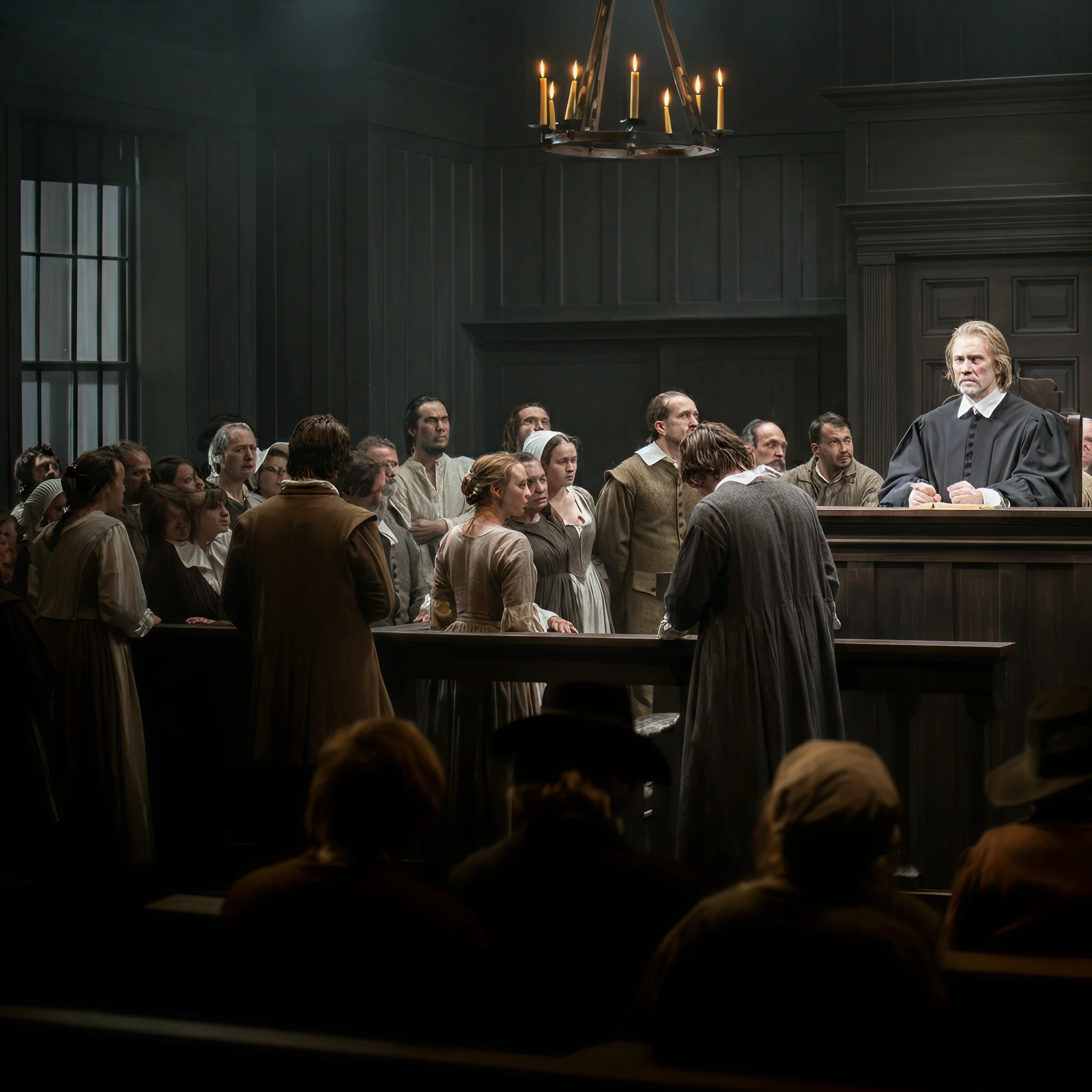Arthur Miller’s The Crucible is more than a historical drama. Set during the Salem Witch Trials of 1692, this play unravels themes of hysteria, truth, morality, and human weakness. The characters at the heart of this gripping story drive its tension and drama. Each one symbolizes varying aspects of guilt, redemption, and the consequences of fear. This article explores the key characters of The Crucible, analyzes their roles, and highlights memorable portrayals by notable actors.
What is The Crucible About?
Set in a Puritan society overwhelmed by fear of witchcraft, The Crucible revolves around the eruption of mass hysteria and its devastating consequences. Based on real historical events, the play portrays how accusations spiraled out of control, targeting individuals who found themselves on the wrong side of personal vendettas or paranoia.
The play’s gripping storyline and richly developed characters have made it a staple in theater and film, most famously adapted as a movie in 1996, starring Daniel Day-Lewis and Winona Ryder.
Key Characters in The Crucible: Analysis and Significance
1. John Proctor
- Who is John Proctor?
John Proctor, the protagonist, is a farmer who grapples with his guilt over an affair with Abigail Williams, the antagonist. His moral struggle is a central theme as he vies to protect his integrity while exposing the falsities of the witch trials.
- Symbolic Role:
Proctor embodies flawed humanity. His personal battle highlights themes of redemption and the moral consequences of standing against mass hysteria at great personal cost.
- Notable Portrayals:
Daniel Day-Lewis famously played Proctor in the 1996 film adaptation, delivering a raw, emotional performance that captured the character’s internal turmoil and struggle for redemption.
- Iconic Quote:
“Because it is my name! Because I cannot have another in my life! Because I lie and sign myself to lies!” This heart-wrenching line encapsulates Proctor’s fight to preserve his honor.
2. Abigail Williams
- Who is Abigail Williams?
Abigail is the manipulative and vengeful niece of Reverend Parris. After an affair with Proctor, Abigail becomes determined to eliminate his wife, Elizabeth, by using the witch trials to her advantage.
- Symbolic Role:
Abigail represents unchecked power and the devastating impact of personal vendettas. Her lies spark the fire that engulfs Salem in chaos.
- Notable Portrayals:
Winona Ryder’s portrayal in the 1996 film earned praise for effectively showcasing Abigail’s mix of charm, deviousness, and desperation.
- Iconic Quote:
“I want to open myself! I go back to Jesus; I kiss His hand.” Abigail uses such dramatic declarations to manipulate those around her.
3. Elizabeth Proctor
- Who is Elizabeth Proctor?
Elizabeth is John Proctor’s loyal and virtuous wife. Despite her calm demeanor, she carries deep pain and distrust caused by John’s affair.
- Symbolic Role:
Elizabeth represents morality and forgiveness. Her role underscores the devastating impact of accusations on family bonds and the fight for truth.
- Notable Portrayals:
Joan Allen played Elizabeth in the 1996 adaptation, delivering a restrained yet powerful performance that earned her an Academy Award nomination.
- Iconic Quote:
“He have his goodness now. God forbid I take it from him!” Spoken at the climax, this line underscores Elizabeth’s moral strength and acceptance.
4. Reverend John Hale
- Who is Reverend Hale?
Hale is an expert in witchcraft called to Salem to investigate the accusations. Initially a firm believer in rooting out witches, he becomes disillusioned as he witnesses the trials’ injustices.
- Symbolic Role:
Hale represents reason and transformation. His evolving perspective reflects the dangers of blind faith and unwavering belief in systems of power.
- Notable Portrayals:
Bruce Davison brought nuance to Hale’s character in the 1996 film, capturing his intellectual decline into guilt and regret.
- Iconic Quote:
“Life, woman, life is God’s most precious gift; no principle, however glorious, may justify the taking of it.” Hale’s plea reflects his desperation to stop the madness.
Relationships and Themes in The Crucible
The interplay of the characters’ relationships weaves the fabric of The Crucible and its exploration of powerful themes.
- John and Abigail:
Their affair sets the tragic events in motion, symbolizing temptation and destruction.
- John and Elizabeth:
Their strained marriage portrays forgiveness and the challenge of rebuilding trust.
- Abigail and the Girls:
Abigail manipulates the other girls into supporting her lies, showcasing fear’s ability to corrupt.
- Hale and the Court:
Hale’s growing moral conflict with the court reflects the tension between faith and conscience.
Notable Actors and Interpretations of The Crucible Characters
Through stage and screen adaptations, countless actors have brought these characters to life. Some notable portrayals include:
- Daniel Day-Lewis as John Proctor (1996):
Lauded for his intense performance, Day-Lewis captured Proctor’s complexities, from his guilt to his eventual redemption.
- Winona Ryder as Abigail Williams (1996):
Ryder’s layered performance brought Abigail’s cunning and vulnerability to the forefront.
- Joan Allen as Elizabeth Proctor (1996):
Allen’s restrained portrayal showcased Elizabeth’s quiet strength and moral resolve.
- Paul Scofield as Judge Danforth (1996):
Scofield’s intimidating performance emphasized the dangerous rigidity of blind justice.
Historical Context and Symbolism
Written during the 1950s, Arthur Miller’s play served as an allegory for McCarthyism, when unfounded accusations of communism caused widespread paranoia. The Salem Witch Trials mirror the dangers of mass hysteria, fear, and authoritarianism.
Each character in The Crucible symbolizes broader societal issues:
- Proctor represents the voice of reason against mob mentality.
- Abigail embodies unchecked ambition and deceit.
- Elizabeth symbolizes enduring faith and moral steadfastness.
- Hale reflects the internal conflict of intellect versus ideology.
The Lasting Impact of The Crucible
Arthur Miller’s masterpiece continues to resonate because it speaks to timeless issues of truth, power, and the human condition. Its characters offer cautionary tales and endure as mirrors of our collective fears and desires.
Whether you’re a literature student analyzing themes or a theater enthusiast captivated by its dramatic tension, The Crucible offers a wealth of insights worthy of exploration.
For those eager to see different interpretations of the play, the 1996 film adaptation remains a stellar starting point. It captures the emotional depth and moral ambiguity of its characters while showcasing legendary performances.
Dive into the world of Salem, and watch as fear-fueled chaos unfolds through the gripping cast of The Crucible.








